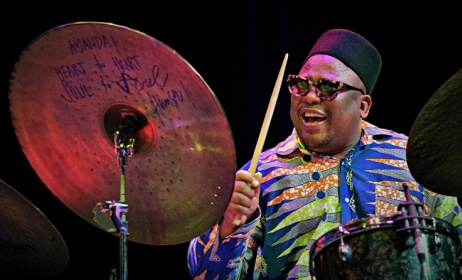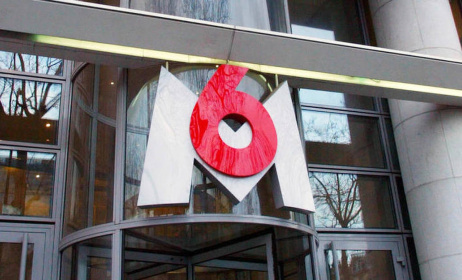Navigating music supervision in the ad industry during COVID-19
When I began independently consulting as a music supervisor the aim was to offer music solutions to advertising companies for their campaigns. This includes clearing music rights for the usage of works and A&R services in the creation of new works for specific adverts, as well as offering other music publishing services. But this was interrupted by the lockdown, which meant some projects I had been working on had to be put on hold while brands reviewed their overall strategy; they needed to restructure budgets and reconsider the products and services they deemed unnecessary during this period.
 AKA's 'Fela in Versace' is now synonymous with the Cruz Vodka brand.
AKA's 'Fela in Versace' is now synonymous with the Cruz Vodka brand.
During times of crisis, marketing budgets are usually the first to be reviewed, depending on how much the marketing department is valued by a company. Advertising in most companies comes from this budget – some see it as a 'nice to have' and others see the value it has on their return on investment. From the companies that recognise value in advertising, there are those that see the bigger picture in above-the-line advertising, which entails production, flighting and music costs; perhaps even brand partnerships or other factors, too. Currently they may still take the whole 'costly package', but in the usage of music there are also levels they need to consider, which can affect the overall budget.
What options does a brand have when looking to use music in an ad campaign?
For an ad campaign a company may decide to use library music, which is the most affordable option. The second choice would be to commission a composer or producer to create a music score specifically for the advert, which may be slightly less affordable than library music depending on the prominence of the commissioned artist or work. The last option is the usage of commercial works in an advert. Commercial works are songs that have been officially released through a distributor, record label, or otherwise, and are largely considered to have a personality on broadcasting platforms. Of course, this categorises most popular music.
What is the difference between using local and international music in adverts?
From commercial works, we are able to distinguish between local and international songs. Local songs are usually more affordable than international songs, and their rights are a bit easier to clear for usage, at least in my experience. An example would be AKA's 'Fela In Versace', which was used in the well-known Cruz Vodka advert.
Then you have international music. This can get quite complex given the difference in value and size of overseas industries compared to the South African industry. These are songs that are deemed to be quite expensive to license for usage in adverts and usually involve the popular hits, such as Pharrell Williams' 'Happy', which was featured in a Vodacom summer campaign.
What informs fees and terms of usage?
There isn’t a standard fee for the usage of songs because fees are informed by the magnitude and popularity of the song, including artist accolades, chart performance, and radio and TV rotation. Other factors include the territory where the ad will be broadcast, the broadcasting medium (radio, TV, online), and so on. In fact, each rights holder has a unique scope in assessing the value of a song in relation to an advert.
The use of commercial music in adverts usually promises a wider reach and additional entertainment value, although that remains dependent on the content and quality of the advert, as well as other factors required to execute an ad campaign successfully.
Back to COVID-19: How does a pandemic impact on the work of a music supervisor?
The less adverts on TV due to budget cuts, the less need for music, which means that the need for a music supervisor is less likely. Even when ads are flighted, more affordable music options are often taken, though that may make the advert less impactful. The flipside is that because there may be budget cuts for retail, product or service advertising, companies are now using their CSI contributions as a way of marketing goodwill.
Recently, I was working on clearing music for a CSI project that would live online for one of South Africa’s state-owned enterprises. The content aimed to spread a positive message during this tough period. Hopefully we will see more campaigns like that happening.
Another aspect to this is that we could emerge from lockdown as different consumers from who we were before the pandemic. Loyalties have shifted because people haven’t enjoyed their usual buying power and they've had to experiment with alternative brands as a result of stockpiling or low production. This is the perfect opportunity for brands to reintroduce themselves to consumers during the so-called 'new normal', through advertising and the integration of music and brand partnerships. The opportunities are endless.
Like everyone else, I had not anticipated this pandemic and the challenges it brought with it. Although I may have thrown myself on the floor when I heard the initial lockdown would be extended, I've had to completely restructure my thinking and find new possibilities within a space that I am extremely passionate about. I've had to intensify collaborative efforts because this is the time to be united with my industry peers – now more than ever.
You can take a look at one of my latest ad campaigns here. I was responsible for clearing the publishing rights for Aretha Franklin‟s 'Respect', as well as putting together a team of local musicians to remake the classic.
DISCLAIMER: The content in this brief was sourced solely from my experience as a music licensing supervisor, having previously worked for Universal Music Publishing, as well as in my current independent capacity. No formal research was undertaken, so feel free to contribute further to the conversation. You can email me at tshepodiseko@gmail.com to discuss this subject further.






















Commentaires
s'identifier or register to post comments